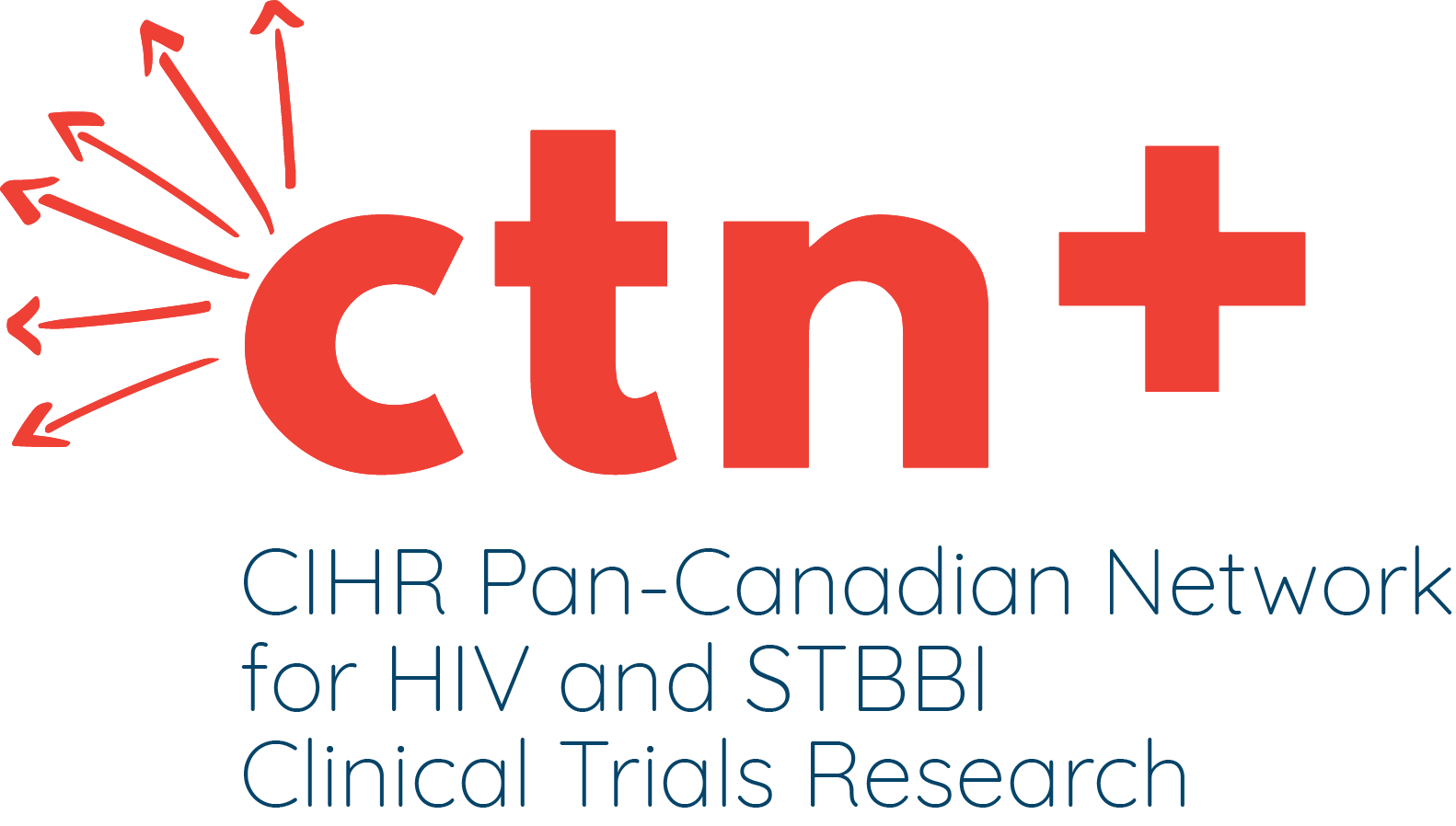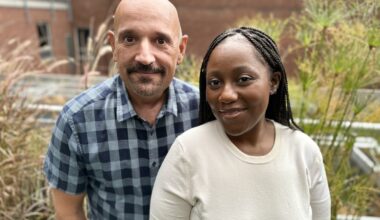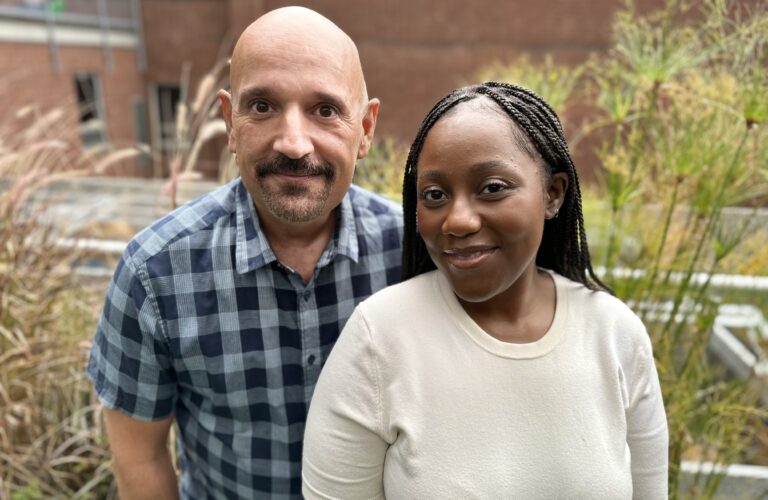A new CTN study investigates how exposure to HIV and antiretroviral drugs during pregnancy could have long-term effects for the millions of kids who were born to mothers living with HIV, but who did not acquire the virus themselves.
The vertical transmission of HIV (from mother to child) was a serious concern in the early years of the HIV epidemic. Before effective interventions, approximately 25% of babies born to mothers with HIV became infected during pregnancy or delivery, and another 15% were infected during the first 12 months through breastfeeding. The introduction of antiretroviral (ARV) medications has significantly reduced the vertical transmission of HIV. Mothers taking ARVs during pregnancy have a drastically reduced chance of passing on the virus, a discovery that remains one of the great success stories of ARVs to this day. While maternal HIV testing and access to ARVs remain significant barriers, particularly in low-and-middle-income countries, higher rates of diagnosis and treatment for expecting mothers in Canada has resulted in very few babies being born with HIV in the country over the past decade.
Nowadays, it is estimated that there are over 14 million children HIV-exposed but uninfected (CHEU) under the age of 14 worldwide. As these children age and develop, scientists are following CHEU to assess for potential complications that may arise when exposed to HIV and ARVs in utero. CHEU remain at higher risk for compromised developmental outcomes, are more likely to be born prematurely, and have higher rates of other negative health outcomes, such as infections and hospitalizations, when compared to children HIV-unexposed and uninfected (CHUU).
The KIND Study
CTN researchers in Toronto and Ottawa have launched The Kids Imaging and Neurocognitive Development (KIND) Study (CTN 315) to investigate the neurodevelopment of kids exposed to HIV and ARVs during pregnancy, and to compare them to matched CHUU from the community. Led by the CTN’s Dr. Lena Serghides, the study will evaluate a range of cognitive abilities, including intellectual capabilities, motor functioning, school functioning, and language skills. Parents will also be asked to rate their own child’s behaviour and social-emotional functioning over the course of the two-year study.
While neurodevelopmental assessments will be used to assess aspects of cognition – from intellectual abilities to reading and math – a brain MRI will assess potential structural differences between the brains of CHEUs and CHUUs. Biological samples will also be collected to test for hormonal and genetic differences.
“In this study, we are really looking at the full range of possible differences between kids who were born to mothers with HIV and those who weren’t,” explains Jennifer Bowes, KIND Study manager and research coordinator in the Division of Infectious Diseases at the Children’s Hospital of Eastern Ontario in Ottawa.
“We want to see if CHEUs are falling behind their peers. Based on the results of previous studies, we’re particularly interested in looking at potential differences in language abilities,” explains Dr. Julia Young, a postdoctoral researcher at the Hospital for Sick Children (SickKids) in Toronto. “This study is unique,” she continues, “because we are looking at children between 6 and 12 years of age. The majority of existing studies have looked at children below the age of 5.” By including older children in the study, the investigators will be able to compare their results with existing studies focusing on infants and toddlers, and assess whether there is ongoing impact from HIV and ARV exposure on children as they grow and develop.
HIV exposure and child development
The KIND Study contributes to a growing focus on aging in HIV research. As ARVs continue to extend life expectancy for people living with HIV and their children, investigators have begun turning their attention to the long-term effects of ARVs. The KIND Study is the first to look at the impact of ARV exposure on multiple aspects of neurodevelopment within this age cohort, and will give investigators a better understanding of the ongoing effects of ARV exposure during a critical developmental period.
Drs. Ari Bitnun and Mary Lou Smith, co-investigators in the KIND Study, clinically follow CHEU at SickKids until they reach school age, and have conducted studies assessing neurodevelopmental differences between CHEU and CHUU at 3.5 and 5.5 years of age. The KIND Study provides an exciting opportunity to continue following this group of children into early adolescence.
Dr. Jason Brophy, another co-investigator, has studied the outcomes of CHEUs in Ontario, and found increased rates of hospitalizations and autism in these children, though not to a rate that is statistically significant when compared to matched CHUUs. Drs. Brophy and Bitnun studied CHEUs with autism and found them to have mitochondrial differences compared to other control groups, which could have been related to HIV/ARV exposure.
The KIND study leverages the expertise of these investigators and takes their research in important new directions: “In this study, we want to see if the developmental differences noted in younger children exposed to ARVs in utero become more or less pronounced as they get older,” says Dr. Young.
Developing targeted interventions
Participating kids will receive two cognitive assessments over the course of two years to assess changes over time. After each assessment families will receive a summary report on the results of their child’s testing, and if need be, specific recommendations for areas of support in the classroom and at home.
In addition, the KIND Study team will be collecting data on the specific types of ARVs taken by mothers during pregnancy. “ARVs have changed dramatically over the past 12 years, including the ARVs used to treat pregnant women” says Dr. Brophy. Collecting data on the type of ARV, along with the timing and duration of ARV use during pregnancy, may show that certain ARV regimens are safer than others, resulting in clearer recommendations on which ARVs are best for expecting mothers.
“It is certainly possible to develop better strategies to support CHEUs,” explains Ms. Bowes, “but, at the moment, we still know so little about the actual impacts of ARVs on children. Gaining a better understanding of children’s neurodevelopmental outcomes may help children and their parents throughout childhood, schooling, and their transition into adulthood.”
The KIND study team is still actively looking for participants, both children exposed to HIV and ARVs in utero, and those not exposed. Participants will receive two MRIs and two full cognitive asssessments with accompanying reports on their child’s cognitive development. Study visits will be conducted at SickKids in Toronto and CHEO in Ottawa.
If you are interested in participating in this study, please contact Jennifer Bowes: Jennifer.Bowes@uhnresearch.ca, 647-636-9538.






